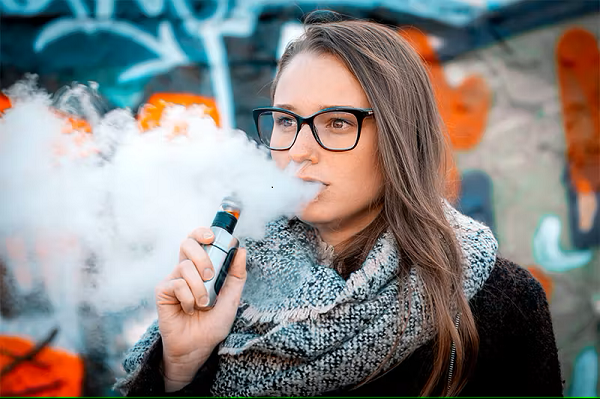| Section | Link to Section |
|---|---|
| Physical Examination | May Hold Without Conducting A Physical Examination |
| Hold Merchandise | It's New To Hold Merchandise With Pending PMTAs. |
| Disposables | Pressure Is Mounting On The FDA To Prohibit Disposables. |
Shipments of disposable vapes, including Elf Bar and Esco Bar, from suppliers in China and Korea to U.S. ports are to be held, per an order from the FDA's import inspectors. The goods have been placed to a "import red list," which permits their detention at U.S. ports of entry without a physical inspection.
Packages from the red-listed shippers that are suspected of containing Esco or Elf Bar items may be held since it is believed that they are illicit tobacco products. Before the products are taken off the red list and allowed to proceed to their intended locations in the United States, the shippers or manufacturers must provide proof that the goods are legitimate. According to "current guidance to FDA field personnel," the import notice is relevant.
May Hold Without Conducting A Physical Examination
Elf Bar is listed in the notice under both its ELFBAR and EBDESIGN identities. It also names six Chinese shippers, including IMiracle, the owner of Elf Bar, from whose products may be seized. Two shipment addresses—one in the United States and one in the Republic of Korea—are also listed in the alert. Six Chinese shippers of Esco Bar are included in the record, along with one US address.
The FDA's Center for Tobacco Products (CTP) "has determined that this firm may be importing/manufacturing/shipping a new tobacco product (Elf Bar/Elfbar or EBDESIGN) without marketing authorization," according to the "Notes" section for each shipper of Elf Bars. Products that contain tobacco but do not meet the conditions for premarket authorization are deemed adulterated. The same terminology is applied to every Esco Bar shipper. Every entry on the red list has a date of either May 15 or May 17.
The FDA Office of Import Operations, a branch of the Office of Regulatory Affairs (ORA), was responsible for sending out the alerts. However, the CTP provided the catalyst for the import crackdown.
The FDA alert states, "Divisions may detain, without physical examination, the tobacco products identified on the Red List of this Import Alert." "The division should confer with the Center for Tobacco Products (CTP) if it is uncertain if a tobacco product is the same product as one listed on the Red List. A product cannot be added on the Red List without CTP consent.
It's New To Hold Merchandise With Pending PMTAs.
The goods in question are legally illegal ("adulterated and misbranded") because the FDA has not cleared their sale; however, the FDA has thus far let products with pending premarket tobacco applications (PMTAs) to remain on the market unaltered, which is the basis for the notice.
Specifically, the argument is whether FDA "enforcement discretion" permits the agency to target two brands (out of thousands) that have outstanding PMTAs.
A significant Elf Bar distributor has informed Vaping360 that Esco Bar and Elf Bar both filed PMTAs for products containing synthetic nicotine during the brief period the FDA accepted PMTAs last year. According to that distributor, the FDA is probably going to be sued over the import prohibition.
Gregory Conley, the American Vapor Manufacturers Association's director of legislative and external relations, told Vaping360, "The FDA will only double and triple down on its current whack-a-mole enforcement strategy unless the Supreme Court or Congress steps in." In the absence of a competent long-term vision or plan, government agencies arbitrarily select things to consider extra-forbidden.
The FDA Drug Office intercepted Chinese e-cigarette shipments in 2009, which sparked a legal dispute that the NJOY owners ultimately prevailed in. The FDA was given regulatory jurisdiction over tobacco products shortly after the seizures were contested, and in 2016, the agency also gained authority over vaping goods by "deeming" them to be tobacco.
Pressure Is Mounting On The FDA To Prohibit Disposables.
The Campaign for Tobacco-Free Kids and other anti-vaping groups have put pressure on the FDA to take action against disposable vapes and all other flavored and synthetic nicotine-based vape products. However, Congress and a significant tobacco firm that also sells vaping goods have also put pressure on the issue.
In order to "better protect public health," R.J. Reynolds, the manufacturer of Vuse vapes, which include the hugely popular Vuse Alto, filed an FDA citizen petition in February requesting that the agency give enforcement against "illegally marketed disposable electronic nicotine delivery system ('ENDS') products" top priority. Not long after Reynolds filed his petition, a House bill was presented requiring the FDA to give enforcement actions against disposables top priority.
Many people also think that Reynolds is the financier of an odd anti-disposable campaign run by a purported consumer organization named Consumer Action for a Strong Economy. Social media messages and a signboard truck circling the FDA's Washington, D.C. offices are part of the campaign. The truck is covered in inscriptions criticizing the FDA for doing little to stop flavored disposables that are "aimed at minors."
Following the FDA's announcement in early 2020 that it would prioritize enforcement against pod- and cartridge-based vaping products sold in flavors other than tobacco and menthol, disposable vapes such as the Elf Bar and Esco Bar saw a sharp increase in popularity. In the two years following the FDA's shift in enforcement objectives, disposables accounted for 33 percent of the vape market's convenience store segment.






